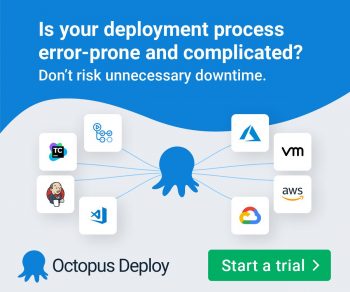Privacy is most commonly defined as ‘the right to be left alone’. It’s essential to our autonomy, protecting our dignity, and shaping ourselves. Yet, we’re becoming increasingly reckless in looking after our privacy. As with other aspects of life, we sometimes fail to realise what we have until we lose it. Are we steering towards the risk of losing our privacy?
Stretching beyond yourself
The need for choice, inherently tied to privacy, is fundamentally embedded in us as individuals. After all, there’s nobody precisely like you. Even identical twins growing up together don’t end up as an exact ‘CTRL+C’ and ‘CTRL+V’ replica; i.e., the cards Mother Nature deals us do not define us. At best, they merely stipulate our starting hand before we sculpt our individuality.
Yet, our environment and ensuing choices remain deeply entwined. Even when we reject the idea of being a product of our environment, our available options and subsequent actions are undeniably linked. It returns to us as some form of causality. In short, every decision we make recurrently reshapes our environment and influences our next decision-making.
To a certain extent, this also means that we hold some power to influence the choices of others. It also applies vice-versa. For instance, when someone snatches away the last slice of cheesecake, this limits our remaining options. Every action has a reaction, whether we like – or realise – it or not.
Sharing is caring—or not?
Science suggests that ecological systems revolve around a state of blissful homeostasis, often referred to as ‘the balance of nature’. Society pivots around a similar concept regarding privacy; we fail to exist as a whole if we’d all go into hiding, yet we fail to flourish when we push towards total exposure.
Interestingly enough, it seems that we’re steadfastly navigating towards the latter. Similar to sugar cravings, our increasing means to easily access and quickly share information with others only seems to intensify our desire for yet another fix. Moments later, we suddenly find ourselves aimlessly scrolling somewhere or entering a weird corner of YouTube. However, like alcohol, moderation remains vital to avoid tipping ourselves towards directions that may eventually derail us.
Regrettably, our pull to these seductive endorphins drives us to accept blind spots repeatedly. Ever made an effort to understand what goes on behind the scenes after accepting all those website cookies or filling in yet another online profile? Probably not. If anything, our desire for instant consumption or eagerness to sculpt our online presence frequently takes precedence over what happens after in the digital rabbit hole of the Internet. Either way, what’s done is done and can’t be ‘CTRL+Z’ undone.
Distorted perspectives and malicious intent
Our perception of information arises from our interpretation of data. The way we process data uniquely pertains to us as individuals and continues to be influenced by some degree of unconscious bias that arises from our unique journey through life; i.e., information is solely meaningful because we assign our meaning to it.
As such, information is inherently prone to change when it travels from one person to another. You’re probably already familiar with this concept of ‘miscommunication’. Whether we intend to or not, sharing information can lead to misinterpretation elsewhere and kick off unforeseen consequences, even when it seems highly unlikely to us. Mixed with foul play, irreversible and extreme outcomes may arise, such as the devastating Holocaust and many more heartbreaking instances.
In short, it’s a slippery slope to assume that your viewpoint, including your intentions and boundaries, similarly resonates with others when sharing personal data. After all, what may be an unappealing selfie to you may as well be perceived as a beautiful monkey by me.
Serve your stakeholders responsibly
When managing a business, we’re often inclined to measure our success in some form of rising numbers. However, if we focus too much on numbers, we risk distancing ourselves from the individuals we aim to serve or otherwise need to consider. Moreover, when we transform people into abstract concepts, we’re treading on thin ice as we essentially erase their humanity. In turn, it becomes harder for us to relate to them.
As a result, businesses risk becoming susceptible to miscalculating improved service opportunities as presumed needs of the individual. Imagine this; you’ve gone out for a big slice of cheesecake. You enter a clothing store hereafter, but a clerk stops to check your pants first. You don’t know why but don’t ask any questions since you’ve got nothing to hide and happily walk out with a purchase later.
Aiming to improve your shopping experience, the shop registered your pant size, pinned a tiny tracking device, and interpreted your bloated belly as an early-stage pregnancy. The following week, clerks keep hovering over you with maternity pants in your size. This annoys the shit out of you, and your tagalong friend starts hysterically crying because she’s repeatably confronted with her infertility.
Insane? These things happen online all the time. Profiles are unknowingly built, expanded, and shared behind the scenes. All for the sake of delivering personalised services that we’ve often not requested, with repercussions arising that we may fail to understand or (for)see.
Final words
Just because the possibilities are endless when it comes to processing data, especially personal data, it doesn’t mean we should. As Uncle Ben from Spider-Man says, “With great power comes great responsibility”. If anything, we should wield our power to limit the processing of personal data to what’s strictly necessary and provide individuals with the full autonomy to explore opportunities beyond this. In case you didn’t know it yet; explicit consent is sexy.
Lastly, if we fail to connect with others through empathy and are willing to risk their privacy for our own endorphins, then we shouldn’t be dealing with people in the first place. Someone else’s ‘right to be left alone’ is not ours to invade.
In short, don’t be a jerk.

















